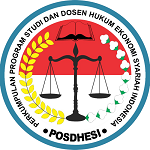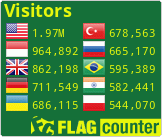Implementasi Kaidah Muamalah pada Percetakan CV. Nekad Romo untuk Meningkatkan Kualitas Karyawan
DOI:
https://doi.org/10.32332/muamalah.v2i1.7293Keywords:
Employees, Performance, Effort, MuamalahAbstract
This study is to provide exposure or results of the implementation of Islamic business ethics in an effort to improve employee performance in one's business. This study uses descriptive qualitative methods to determine the perspective of Islamic values in the implementation of Islamic business ethics in employee performance. The object or place taken in this research is World Romo Romo which is engaged in the Romo and advertising business at Jalan Terong Metro Timur Address, Metro City. Data taken using primary data obtained from interviews with business owners, employee representatives and customer representatives by testing the validity of the data using triangulation. Data collection techniques through interviews, observation, and also documentation.
Downloads
References
Downloads
Published
Issue
Section
License
Copyright (c) 2023 Singgih Prayogo, Nawa Angkasa

This work is licensed under a Creative Commons Attribution-ShareAlike 4.0 International License.
All articles in the Mu'amalah: Jurnal Hukum Ekonomi Syariah can be disseminated on condition that they still include the identity of the article and the source (Mu'amalah). The publisher is not responsible for the contents of the article. The content of the article is the sole responsibility of the author.
Authors who publish this subject agree to the following terms:
First, the Authors retain copyright and grant the journal rights from the first publication with the work simultaneously licensed under a Creative Commons Attribution-ShareAlike 4.0 International License that allows others to share the work with an acknowledgement of the work's authorship and initial publication in this journal.
Secondly, the authors can enter into a separate or an acknowledgement of its initial (e.g., post-institutional repository or publish it in a book) publication in this journal.
![]()
Third, the authors are permitted and encouraged to post their work online (e.g., in institutional repositories or on their website) before publishing work is cited.








